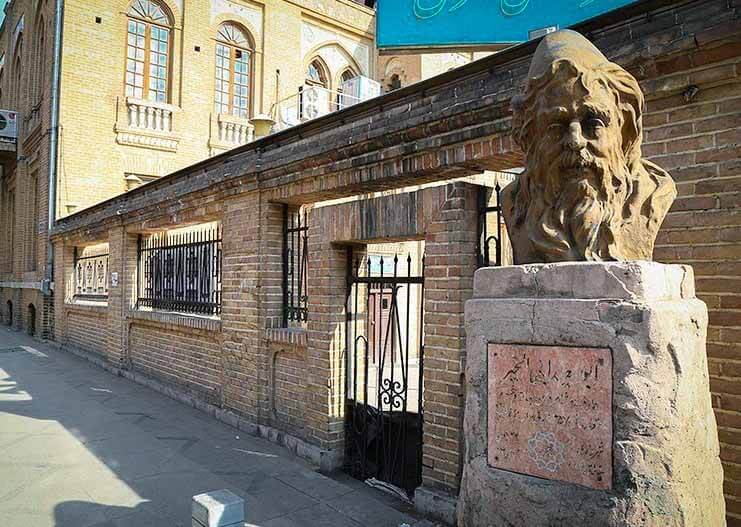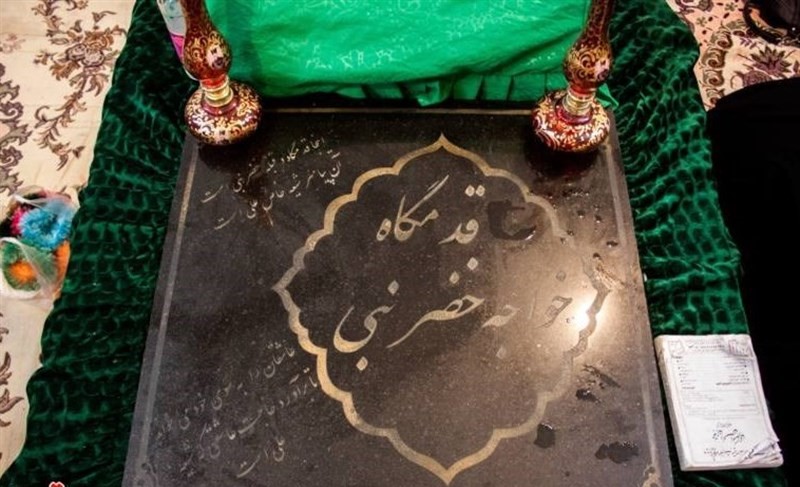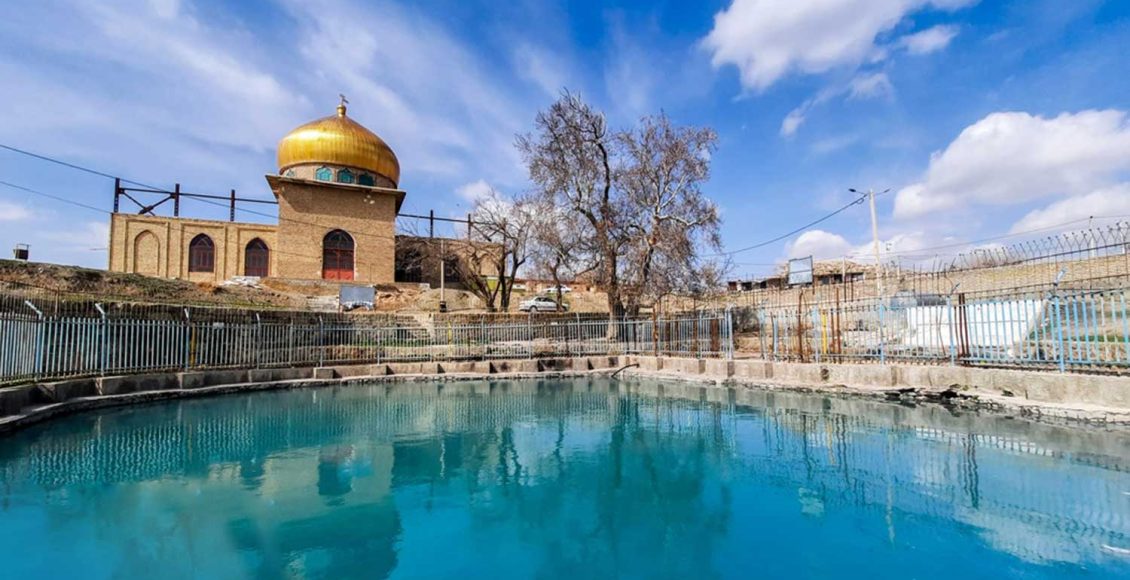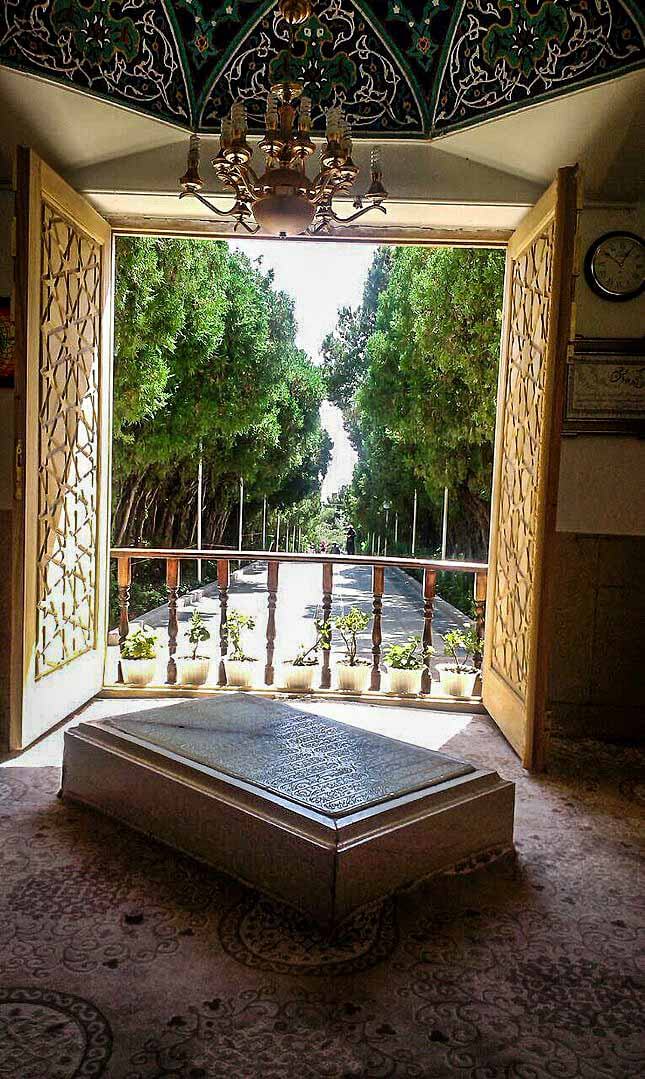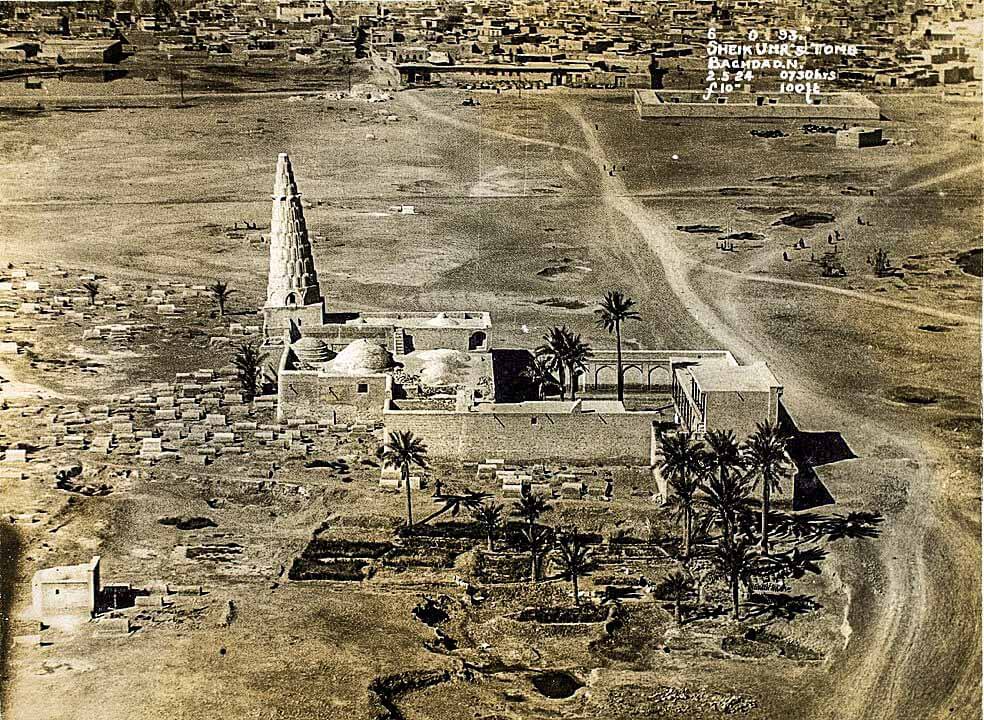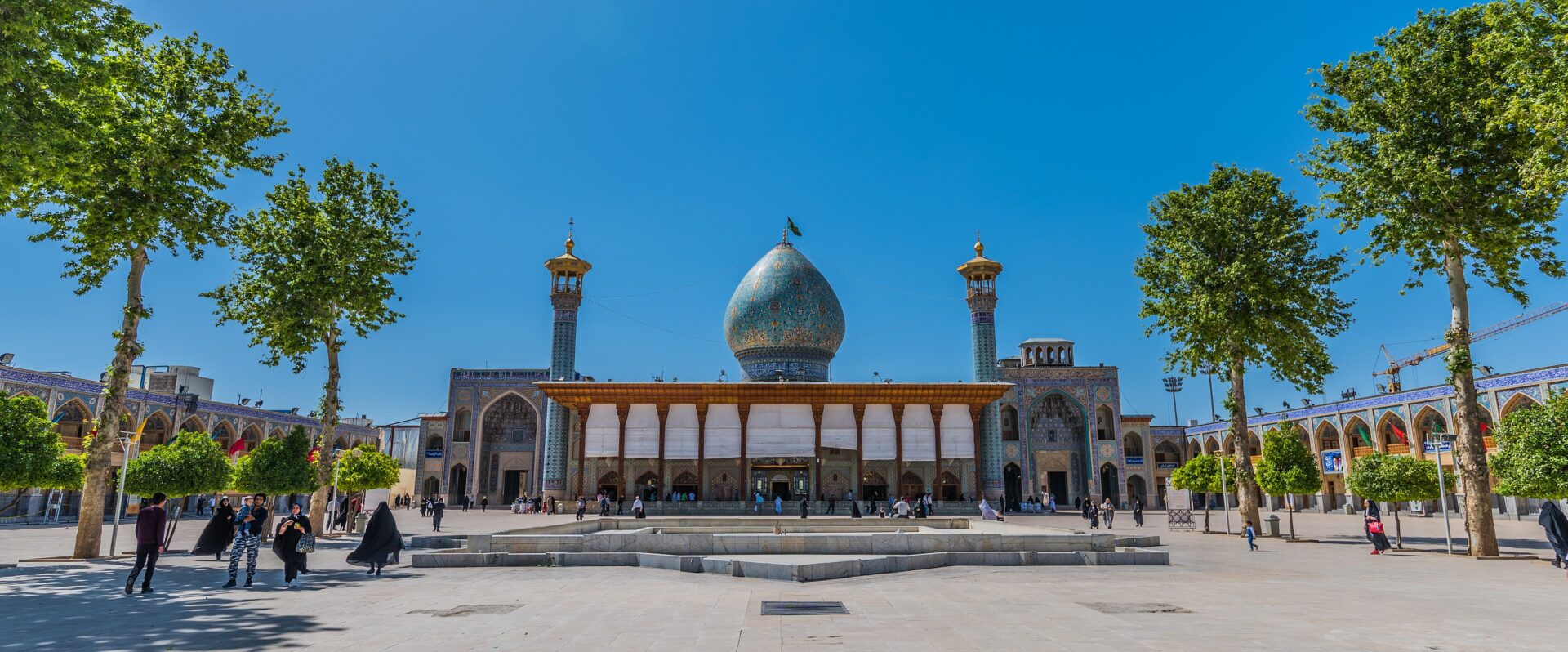Mehneh, Iran
Coordinates: 34.989146, 58.848741
Hz. Abu Sa’id Abu’l-Khayr رحمة الله عليه was a famous Persian Sufi and poet who contributed extensively to the evolution of Sufi tradition.
During his life his fame spread throughout the Islamic world, even to Spain. He was the first Sufi writer to widely use ordinary love poems as way to express and illuminate mysticism, and as such he played a major role in foundation of Persian Sufi poetry.
He spent most of his life in Nishapur.
Mysticism
His mysticism is a typical example of the Khorasani school of Sufism. He extracted the essence of the teachings of the past Sufis of this school and expressed them in a simpler, and in a sense deeper, form without the use of philosophy.
He held a special reverence for earlier Sufis, especially Hz. Bayazid Bastami رحمة الله عليه and Hz. Hallaj رحمة الله عليه.
Moreover, in Asrar al-Tawhid, Tazkiratul Awliya and Noorul Uloom it has been written that Hz. Abu Sa’id Abu’l-Khayr رحمة الله عليه went for the visit of Shaikh Abul Hassan Kharaqani رحمة الله عليه and got deeply influenced by his personality and state.
His system is based on a few themes that appear frequently in his words, generally in the form of simple emotional poems.
The main focus of his teachings is liberation from “I”, which he considered the one and only cause of separation from God and to which he attributed all personal and social misfortunes.
His biography mentions that he would never call himself “I” or “we” but “they” instead.
This idea of selflessness appears as Fotovvaat (a concept very near to chivalry) in his ethical teachings and as Malaamat, a kind of selflessness before the Beloved which he considers a sign of perfect love in his strictly mystical teachings.
Both of these concepts in a certain sense are spiritual forms of warrior ethics. Despite their simplicity he believed that the full application of these teachings to one’s life requires both divine grace and the guidance of an experienced Sufi, and is impossible through personal efforts alone.
His picture as portrayed in various Sufi writings is a particularly joyful one of continuous ecstasy. Other famous Sufis made frequent references to him, a notable example being the Persian Sufi poet Hz. Farid al-Din Attar رحمة الله عليه, who mentions him as his spiritual guide. Many miracles are attributed to him in Sufi writings.
Poetry
Many short Persian poems are attributed to him and he is considered one of the great medieval Persian poets.
The attribution of these poems has always been doubtful and due to recent research, it is generally believed that he wrote only two poems in his life.
The attribution of so many poems to Hz. Abu Sa’id رحمة الله عليه was due to his great fondness for poetry. His love for poetry can be seen from the fact that he usually used love poetry written by non-Sufis in his daily prayers.
Even his last words were a poem, and at his funeral instead of the recitation of Qur’anic verses, he requested the following poem.
What sweeter than this in the world!
Friend met friend and the lover joined his Beloved.
That was all sorrow, this is all joy
Those were all words, this is all reality.
Another example of the poems attributed to him.
Love came and flew as blood in my veins
Emptied me of myself and filled me with beloved.
Each part of my being she conquered
Now a mere name is left to me and the rest is she.
Relationship with Abu Ali Sina
There is evidence that Hz. Abu Sa’id Abu’l-Khayr رحمة الله عليه and Abu Ali Sina (Avicenna), the Persian physician and philosopher, corresponded with one another.
Hz. Abu Sa’id رحمة الله عليه records several meetings between them in his biography. The first meeting is described as three days of private conversation, at the end of which Hz. Abu Sa’id رحمة الله عليه said to his followers that everything that he could see (i.e. in visions), Abu Ali Sina knew, and in turn Abu Ali Sina said that everything he knew Hz. Abu Sa’id رحمة الله عليه could see, in realistic theory presents the superlative connection between Islamic Saints of Allah (Awliya) revealing the reliability of such spiritual powers as believed to be placed on them by Allah.






